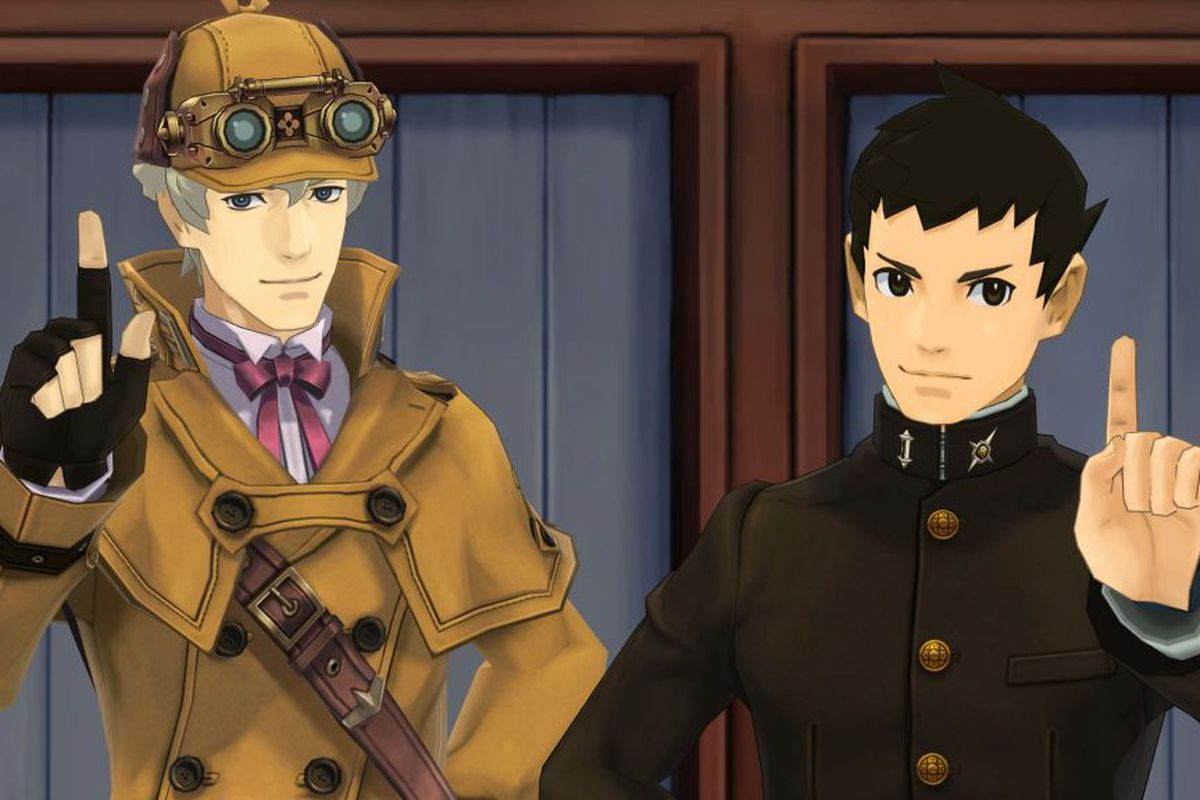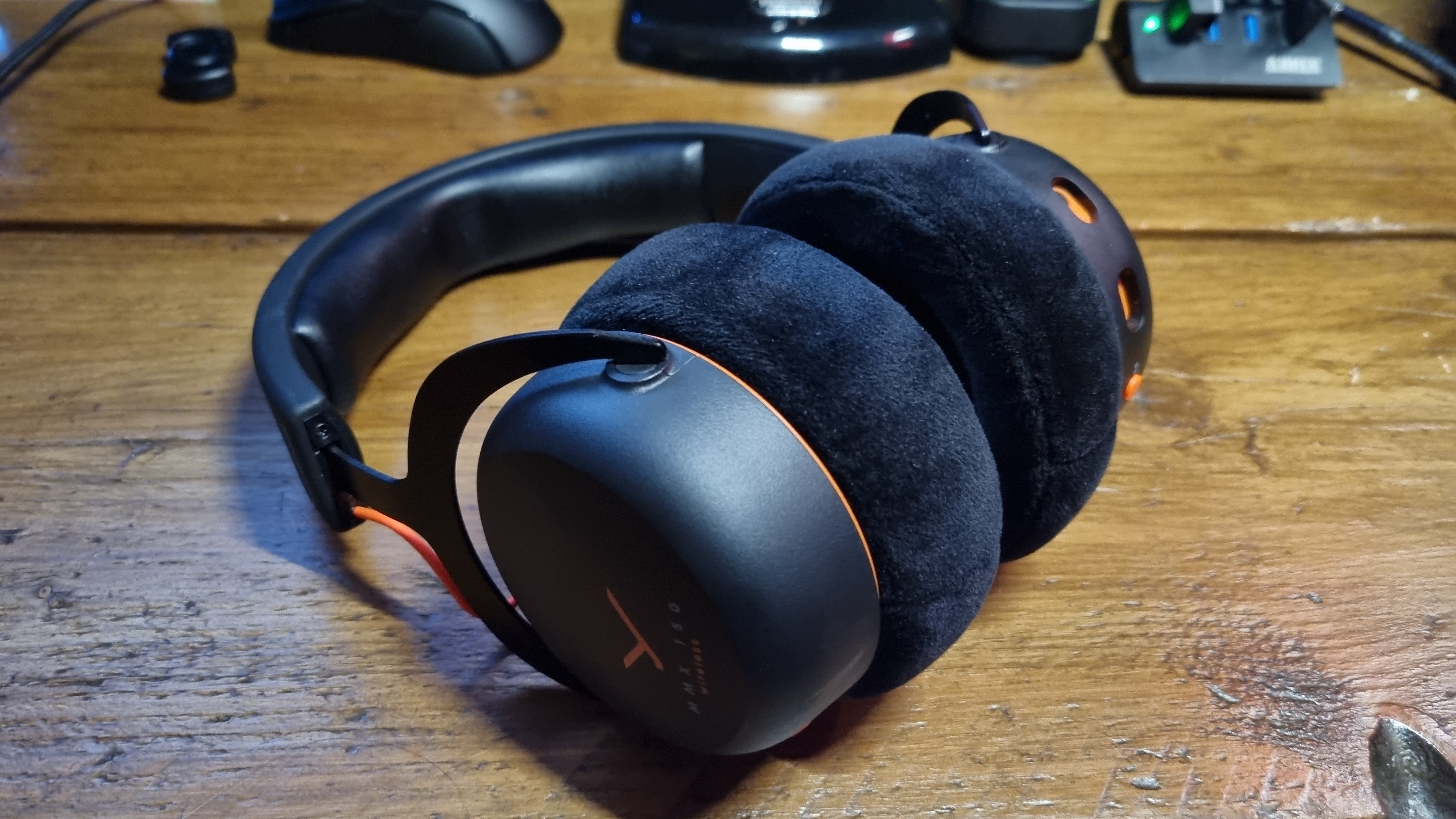Our Verdict
The Great Ace Attorney Chronicles has the rush of excitement of the courtroom but chooses melodrama over mystery.
PC Gamer's got your back
What is it? A bombastic courtroom visual novel set in the 19th century
Expect to pay £32 / $45
Release: July 27, 2021
Developer Capcom
Publisher Capcom
Reviewed on AMD Ryzen 5 3600, 8GB RAM, AMD Radeon RX 5700 XT
Multiplayer Nope
Link Official site
When Capcom announced that The Great Ace Attorney Chronicles would be coming to Steam on day one of its overseas release, the eruption of joy PC players felt was like hearing the words "not guilty" after a long, fierce trial. The original Phoenix Wright: Ace Attorney trilogy (released in the early 2000s) only made their way to Steam in 2019, so we're used to waiting longer. Not this time, though. The international versions of The Great Ace Attorney: Adventures and The Great Ace Attorney Adventures 2: Resolve are available right out the gate, neatly bundled together in this double feature.
The Great Ace Attorney Chronicles keeps up much of the melodrama and flair from previous games in the series. If you want backstabbing, tragedy, and lawyers slamming their hands on desks, aggressively pointing and shouting—it's all here. But, after playing all ten cases across both games, I never felt like the story reached the dramatic highs of its predecessors. The Great Ace Attorney Chronicles has all of the drama of a telenovela, but at the heart of the series are its mysteries, and in that respect both games in the bundle are lacking.
The story of the two prequels follows Ryūnosuke Naruhodō, a young Japanese lawyer who has traveled from Meiji period Japan to Victorian England to learn about Britain's legal system—touting itself as one of the greatest judicial systems in the world. Together with his legal assistant Susato Mikotoba, Naruhodō helps defend those in need of legal assistance in a series of dramatic courtroom battles.
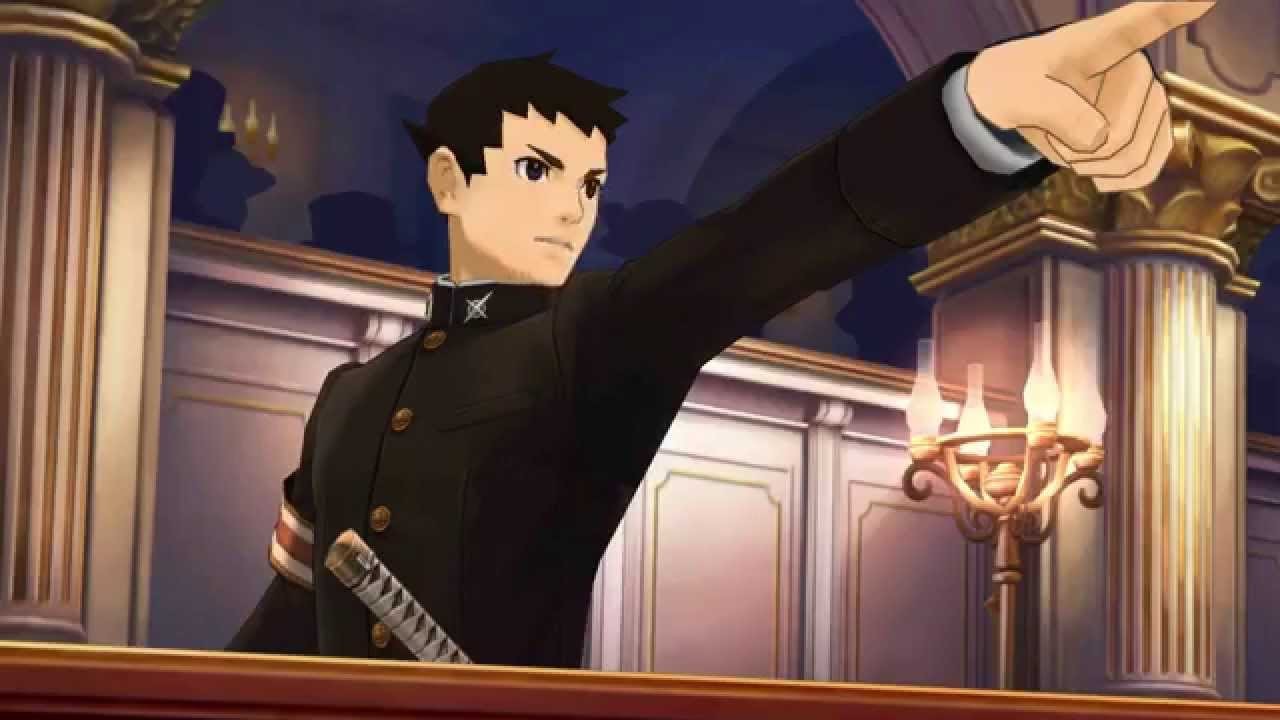
Although Naruhodō is Phoenix Wright's 19th-century ancestor, there's no connection to the previous games whatsoever, and London as a setting provides a fresh slate for new players and seasoned fans alike. It's a clever choice of location, and not just because British caricatures are easy pickings. Victorian London is a city with lots of thematic threads, and an important part of the story is the way that Naruhodō has to grapple with London's seemingly flawless judicial system and the heinous crimes that are lurking in the city's underbelly.
We've seen this with characters in previous games—individuals who seem to place truth and justice above all else, when they don't really believe that—but this is the first time this duality has been explored on a societal level. It's an underlying tension that plays out across both games, each case revealing more about London's superficially pristine way of handling the law, and it's completely new to the series.
Cor Blimey Guv'nor
With this new setting comes a wealth of flamboyant characters. Among them is Susuato, the legal assistant whose impressive knowledge of Britain's legal system has helped stop our leading lawyer floundering on the defense bench more times than I can count. She may be softly spoken, but she's got a secret martial art move she calls the Susato Toss where she'll flip Naruhodō off his feet and onto his back when she's pissed off. There's also Barok van Zieks, a ferocious prosecutor known as "The Grim Reaper of the Old Bailey" who is really just a big diva. He drinks wine throughout courtroom sessions, crushes his golden chalice in his fist with dramatic flair, and occasionally pounds his boot down on the prosecution table when he gets annoyed.
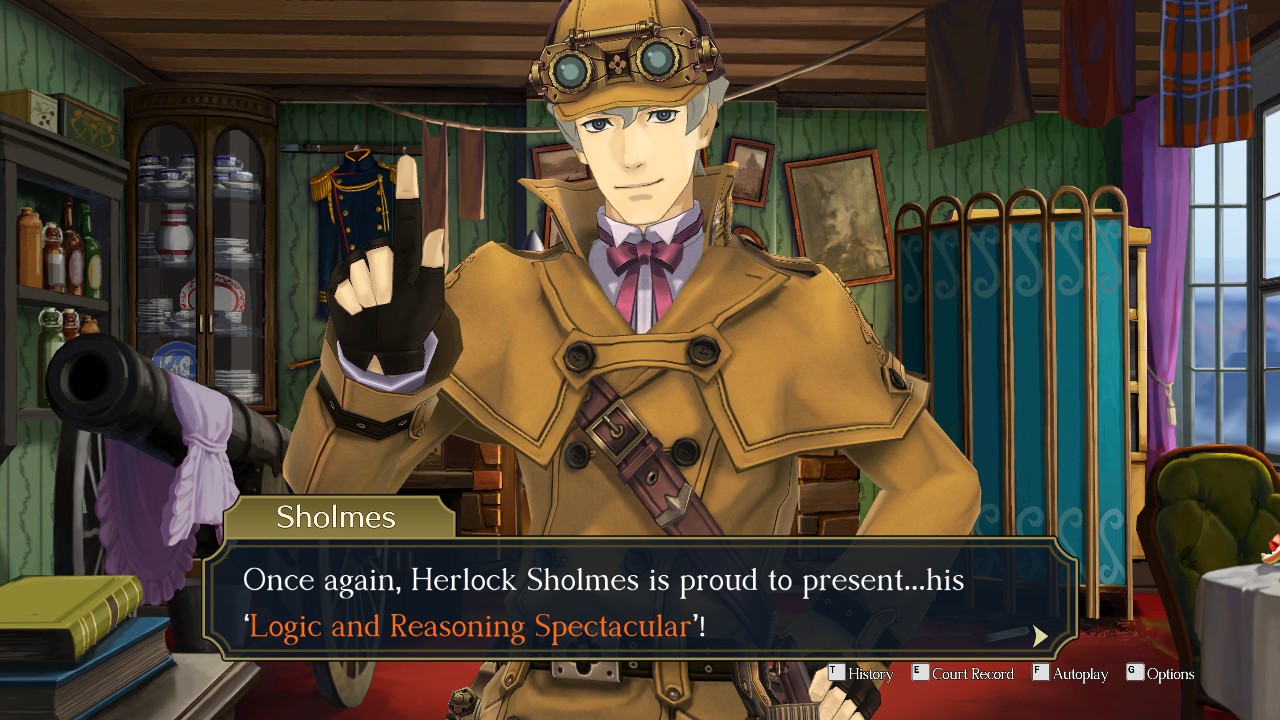
I love how far Capcom has pushed London stereotypes with some of the characters to the point where it's completely farcical. Helping you investigate is Tobias Gregson, a Scotland Yard officer who is constantly noshing on fish and chips wrapped in newspaper (even when he's been summoned to court) or the loveable street urchin named Gina, whose London accent is so thick I have to slow down my reading and try to decipher what she's saying. Cases are filled with Victorian London archetypes and you'll see a fair share of cabbies, coppers, street peddlers, top-hatted gentlemen, and corseted ladies. And who can forget the addition of the great detective Herlock Sholmes?
Keep up to date with the most important stories and the best deals, as picked by the PC Gamer team.
Long gone are the days when Sherlock Holmes was an up-tight, stuffy detective. If Frogware's younger and 'cooler' take on the famous character is not your cup of tea, then Capcom's 'Herlock Sholmes' will have you smashing teacups. In The Great Ace Attorney Chronicles, Sholmes leans heavily into the eccentric side of 'eccentric genius' and helps Naruhodō with the investigation parts in-between trials. Instead of just collecting witness statements and evidence in these sections of the game, you'll now be helping Sholmes with his less-than-astute deductions in a new mini-game that Sholmes excitedly calls his "Logic and Reasoning Spectacular". It involves looking around a scene and picking out clues that help correct Herlock's dramatic deductions into making sense, putting the detective back on the right path.
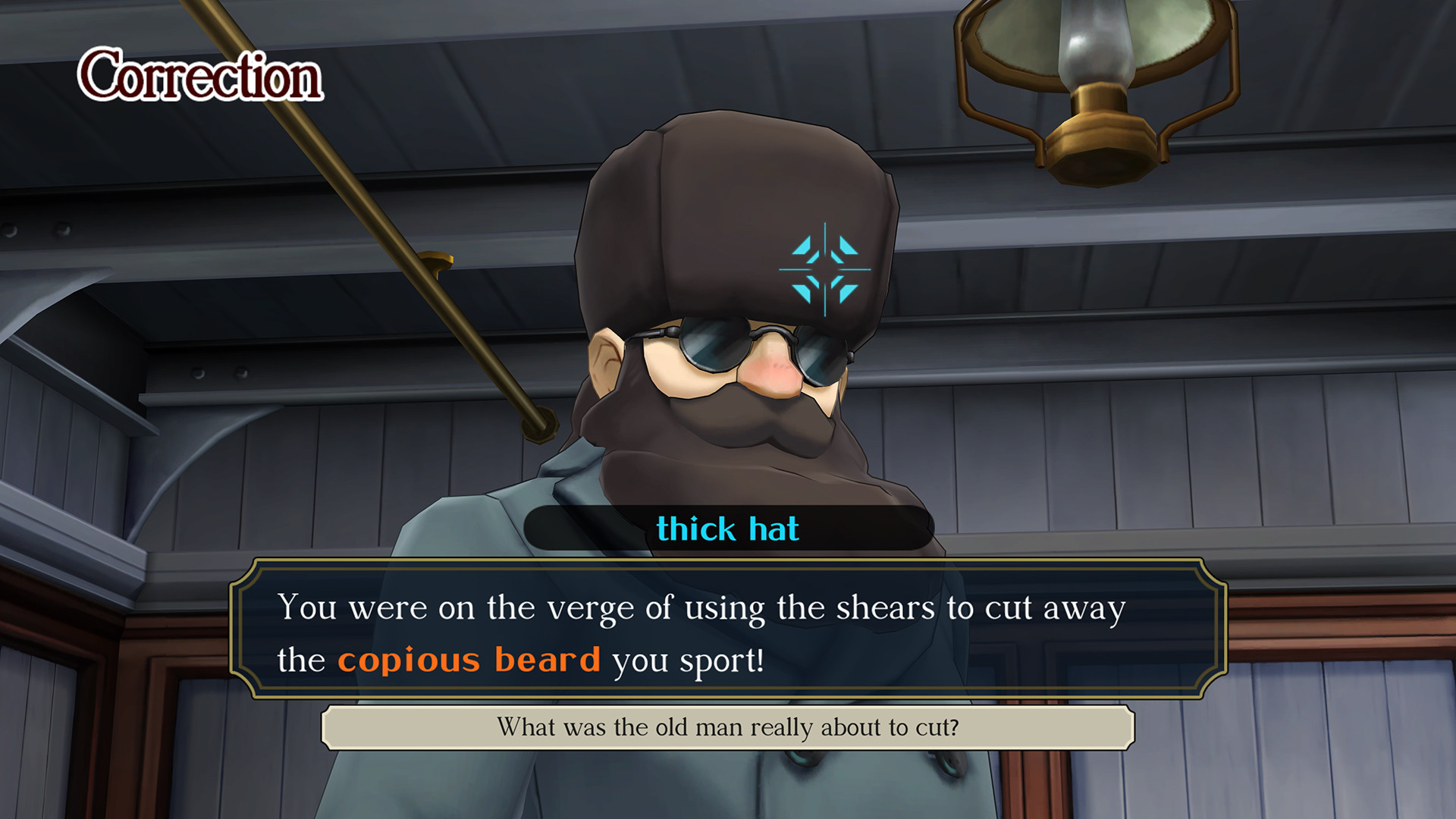
This deduction mini-game does liven up the investigation sections, letting you move the camera through the 3D space instead of just clicking the flat image looking for clues, it feels like you're properly snooping through an area. But it does pull away from actually gathering evidence for the trial. Story-wise, these scenes do relate to the incoming trial in some way or another, like introducing characters who will be taking the witness stand, but it takes up more focus than actually collecting evidence.
I understand Capcom's desire to shake up the investigative portion with more hands-on deductions, which also make sense when you've got a Sherlock Holmes analogue lending a hand, but I miss gathering up all the evidence—there's not nearly as much to find. There's a missed feeling of showing up to court with a bag full of evidence, wondering how each object is going to fit into the wider case. As fun as Herlock's 'Logic and Reasoning Spectacular' is, it removes a lot of this feeling, leaving no sense of build-up to the trial.
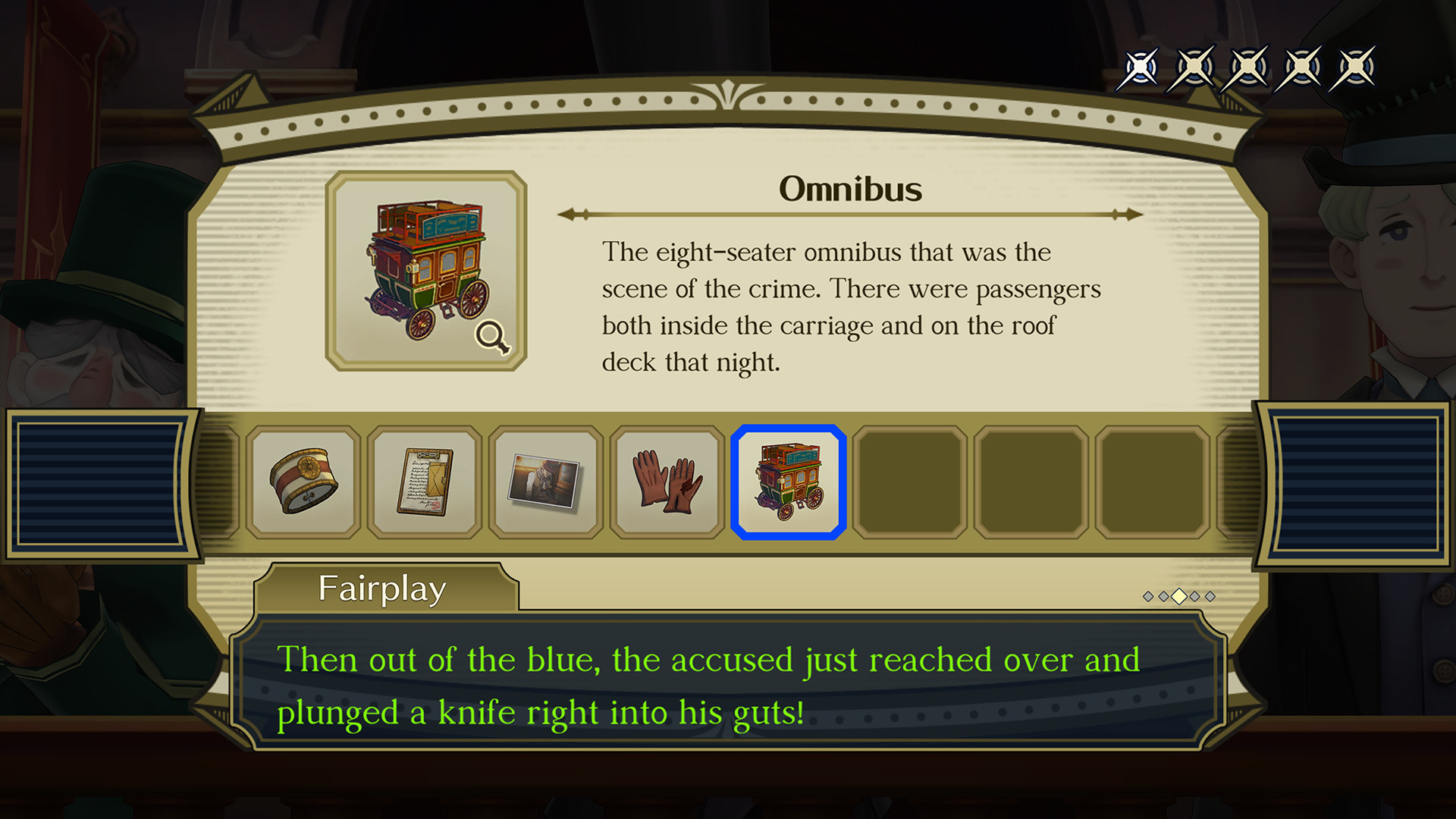
The courtroom system has also had a refresh thanks to the new setting. Trials now have a lot more dimensions than just witness testimonies and presenting evidence. Instead of convincing the judge, you now have to prove your client's innocence to a six-member jury who all have their own thoughts and opinions that you'll need to cross-examine. It's a system inherited from the Professor Layton vs. Phoenix Wright spin-off and breaks up the mid-trial monotony, ensuring that you won't be going through the same motions that we've seen in every other Phoenix Wright.
If the courtroom wasn't busy enough with six new jurors, you'll also have to deal with multiple witnesses taking the stand simultaneously, all of them able to react to each other's testimony. The focus on one witness is now split between three or even four different people, and you'll need to keep switching between characters, and if one person behaves weirdly to another's testimony you need to poke them and find out why.
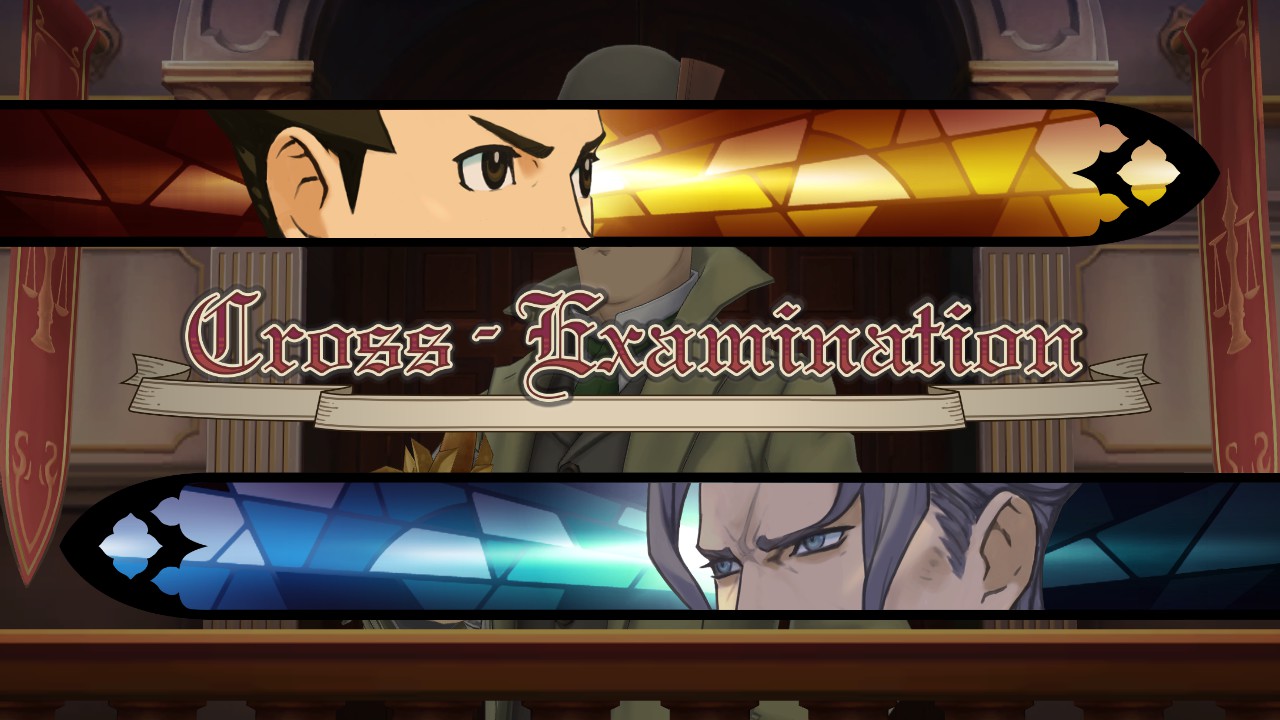
Together with looking over evidence for clues, dealing with prosecutor shenanigans, and pressing witnesses for more info, there's a lot goes into winning a trial. This system is much more dynamic than previous entries in a way I didn't think was possible for an Ace Attorney game. One example is how the jury launches fireballs into an enormous judicial scale to give their verdict—that's Ace Attorney for you.
Trials and Tribulations
This is the first time in the series that it's delved into a historical setting, exploring the relationship between Japan and Great Britain during the Meiji and Victorian eras. The British Empire is portrayed as imperialistic and arrogant, a view ballooned by the character's banging on about the country's technological advancements and pristine judicial system. As a result, there's a lot of uncomfortable racial discrimination toward Naruhodō and other Japanese characters.
It's a completely fair depiction of Victorian Britain in the 19th century. The fact that the games are made by Japanese developers who want to comment on the social, racial, and class discriminations of the era is a refreshing change in tone for a series that has a whole case about a pair of magical polka-dotted bloomers. But the way that the British main cast treats the Japanese characters is beyond uncomfortable and creates jarring tonal shifts in scenes. British characters sometimes describe Japanese characters as 'sneaky' and 'shady', and there's just a general distrust of anyone who doesn't have a thick London accent or isn't shovelling fish and chips into their mouths. It makes things incredibly awkward when you're chatting to witnesses, and even main characters you're supposed to like.
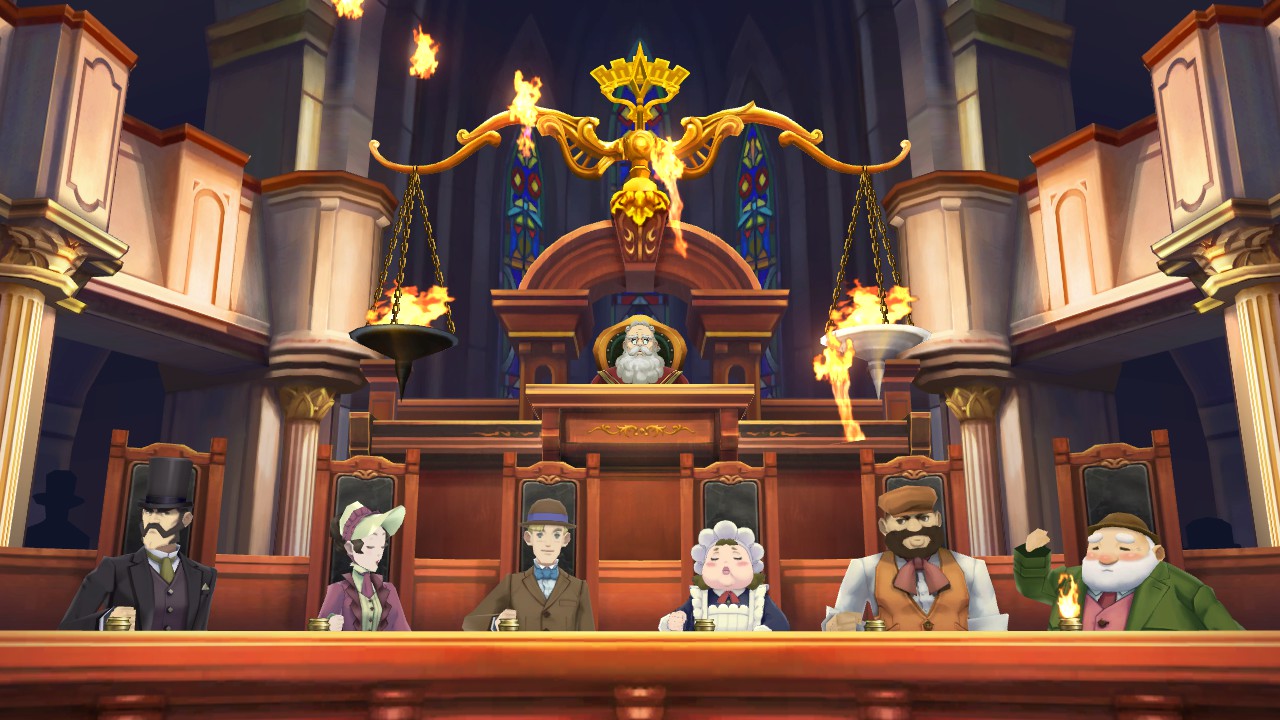
Both games also fall into a lot of typical mystery traps. Surprise conclusions and left-field explanations are prominent in a handful of the cases, which takes much of the fun and dramatic detective work out of the story. During some trials, I felt baffled until the very end, only to be frustrated as an important bit of info is flung into the courtroom for dramatic effect. It often feels like the game favors an outrageous twist over creating a solid, clever plot.
I love the melodramatic theatre of the Ace Attorney series, and choosing to focus on the conflict between London's orderly reputation and the grim reality of this city, full of secrets and criminals underneath its floorboards, is a welcome addition to the series.
But I really play these games for the mystery. There have been some cases in previous games where I've felt completely involved, making sure all the clues are meticulously analysed and putting all the pieces together for a final, satisfying revelation. I didn't get those revelations in The Great Ace Attorney Chronicles. With all the new systems and scandalous story twists and turns, I think it loses that important feeling. There's lots more to do and the game's presentation is gorgeous, but the core mystery of finding out 'whodunnit' can get a little lost amidst all the dramatics.
The Great Ace Attorney Chronicles has the rush of excitement of the courtroom but chooses melodrama over mystery.
Rachel had been bouncing around different gaming websites as a freelancer and staff writer for three years before settling at PC Gamer back in 2019. She mainly writes reviews, previews, and features, but on rare occasions will switch it up with news and guides. When she's not taking hundreds of screenshots of the latest indie darling, you can find her nurturing her parsnip empire in Stardew Valley and planning an axolotl uprising in Minecraft. She loves 'stop and smell the roses' games—her proudest gaming moment being the one time she kept her virtual potted plants alive for over a year.
